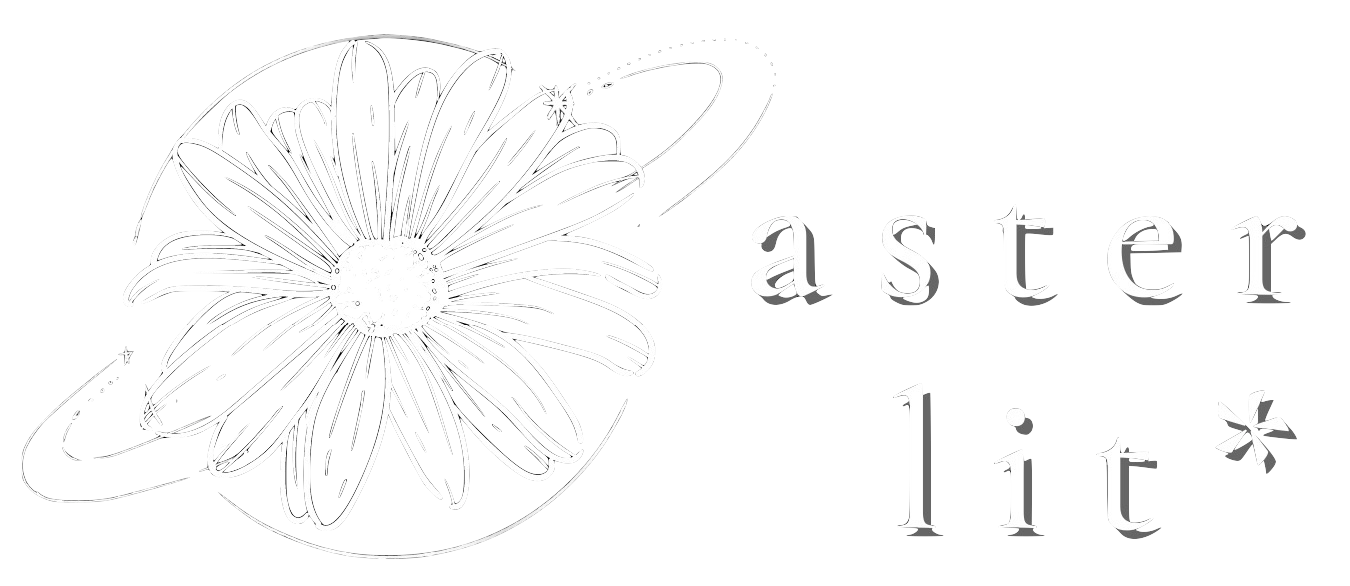
Aster Lit: translatability
Issue 12- Summer 2024
Mother—Why can I not speak?
Dearest, you have spoken, and yet you are not free.
Zara Hafeez Siddiqui
"زارا، تم میری بات سن رہی ہو نا بچے؟"
Translation: "Zara, you are listening to me, right, child?"
My mother, a beautiful yet frail woman, would ask me this question every time we sat together and she weaved stories of the world. To this question, I would nod, darting my eyes to her delicate features as she continued weaving tales of all kinds of creatures, both divine and mortal, both alive and dead. However, as the years passed, my mother’s stories took a turn. Fictional instances soon turned into moments she had picked out from her own life, memories of all her pain, happiness, and all her grief. Weaved into tales that she laid before me. One morning, after she prayed her fajr prayer, I sat beside her expecting another tale, she said words that would stick with me for the rest of my life.
"مجھے نہیں لگتا کہ تم میرے الفاظ سے میرے دکھ کو سمجھ پاو گی، اس لیے میں نے فیصلہ کیا ہے کہ تم کو اب میں ان کہانیوں میں سے، جو میں نے اپنی یادوں سے بنائی تھیں، مزید کچھ نہیں سناؤں گی ۔"
Translation: "I don't think you will be able to understand my pain with my words, so I have decided not to tell you any more of the stories I made up from my memories."
I did not understand what she had meant back then. Could stories really be constructed by a person’s memories? Why had my mother felt that I would not understand her? Had she really thought that I would not be able to understand the string of words she let out just because she spoke them in a language I couldn’t understand well at that time?
Regardless, almost a decade went by, and then I began to write. Initially, I had wished to write in Urdu, but my mother’s words lingered. What if they, the people who read my works one day when I published them, couldn’t understand? What if this language hindered me like it did my mother? So I wrote every single piece of mine, from the very beginning, in a language learned out of necessity. In words I had stolen, in the quiet of a deadly night from a tongue that was not my own.
I lived like this: speaking stolen words. There even came a time, when a dear friend—one that I had held very close to my heart—shredded my ambition to pieces telling me that I was just a fragment of all the pain I had in me, and yet I still hadn’t found the guts to express my pain in words that would showcase who I really was. She had meant that I was so overcome with my pain, something that had become all-consuming, that slowly but surely it grew so much that it was no longer a part of me, rather I was a part of it. In the most deceptively gentle manner, she called me a thief.
Time passed and soon enough I stood amidst the gatherings of my parents' gentry, where parents stood together dressed in navy suits and embellished clothing competing amongst one another regarding their children’s accomplishments, I navigated my way around these conversations, always hearing,
"تم عبید کی بیٹی ہو نا؟ میں تمہاری آنکھوں میں اس کا عکس دیکھ رہا ہوں، بولو، بچے، کیا تم اتنے ہی باصلاحیت ہو جتنا تمہارے باپ نے کہا ہے؟"
Translation: "You are Obaid's daughter right? I see his reflection in your eyes. Say, child, are you just as talented as your father says you are?"
There, I would perform my tricks like a monkey at a circus. Speaking with a flow I had mastered through sheer force and nothing else. My confident words sparkled, and so did my audience’s eyes. The competition had been won, and my words had won the award for the best spoken in the night.
Then an Aster Lit editorial assignment led me to an essay titled, “WATCHING THE VOICE OF CHINA WITH MY MOTHER AT 13 — 13 岁的时候,我和妈妈一起看《中国好声音》.” Though not my tongue, the speaker’s feelings of not being understood by their own mother—and their mother not realizing that the speaker was able to understand her—resonated. Were my mother’s words uninterpretable or just misunderstood?
So, after years of trying, I pulled myself together and decided to go to my mother once more. After a very long time, I sat with her again and laid my memory bare. She laughed. Confused, I asked why.
"بے وقوف، میرا یہ مطلب کبھی نہیں تھا کہ تم میری باتوں کو صرف اس لیے نہیں سمجھو گے کہ وہ ہماری مادری زبان میں ہیں۔ میں نے غم کی زبان بولی تھی، اور یہ وہ ہے جس کی تشریح کسی بچے کو نہیں کرنی چاہیے۔"
Translation: "Silly, I had never meant that you wouldn't understand my words just because they were in our mother tongue. I had spoken the language of grief, and it is one that no child should have to interpret."
Her words lightened a tunnel that had grown weary and dark over the years, so cold that I had not even wished to visit it ever again. Now, after listening to her serene words and her hearty laughter I found myself standing in that cave once again. I stood up, went to my desk, and picked up my pen. Only this time, my words were my own. Not ones I had stolen from another language. And I finally understood then, that there was not just language that needed to be translated, maybe it was emotions as well. My mother’s grief then translated into words I displayed in my ink. I became a narrator then, translating grief, and mourning lovers in words that would not call me a thief.
